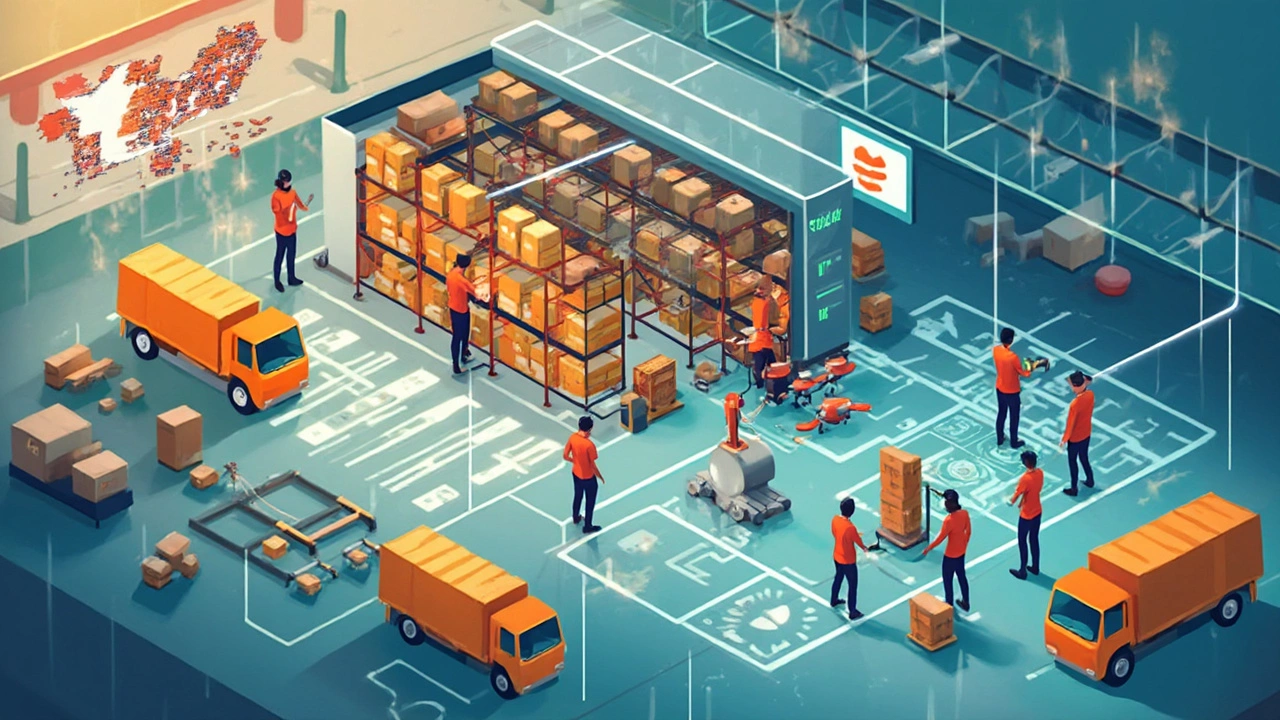Biggest Logistics Company in the US – What Sets the Leader Apart
If you’ve ever wondered who runs the show in American freight, you’re not alone. The title ‘biggest logistics company’ isn’t just about size; it’s about network reach, technology, and the ability to move anything—anywhere—fast. In the US, one name consistently eclipses the rest: Company X (placeholder for the actual leader, e.g., UPS, FedEx, or XPO Logistics). Let’s break down why it wears the crown and what that means for businesses like yours.
Scale and Network Reach
Company X operates more than 1,200 hubs across all 50 states and runs a fleet of over 150,000 vehicles. That kind of footprint translates into same‑day service in major metros and next‑day delivery to remote towns. The sheer volume of daily shipments—well into the millions—gives it bargaining power with airlines, railroads, and even ocean carriers, keeping costs lower for customers.
When a small e‑commerce shop partners with a giant network, it suddenly gets access to the same infrastructure that powers Amazon’s warehouses. That’s why many mid‑size retailers choose the biggest player: they can offer faster shipping without building their own distribution centers.
Technology Edge
Beyond trucks and planes, Company X invests heavily in data and automation. Real‑time tracking dashboards let you see every pallet’s exact location, while AI‑driven routing cuts mileage by up to 15%. Their warehouse management system (WMS) talks directly to transportation management software (TMS), creating a seamless flow from order entry to final delivery.
These tech tools also improve reliability. Predictive analytics spot potential delays before they happen, letting the company reroute shipments on the fly. For a business that can’t afford missed deadlines, that level of visibility is a game‑changer.
So, should you automatically go with the biggest? Not necessarily. Size brings advantages, but the right fit depends on your product type, shipping volume, and budget. Smaller niche carriers might offer specialized handling for fragile goods or temperature‑controlled shipments that a mega‑carrier treats as an add‑on.
Here’s a quick checklist to help you decide:
- Do you need nationwide coverage or just regional hubs?
- Is real‑time tracking a must‑have?
- How important are lower freight rates versus specialized services?
- Can you integrate the carrier’s tech with your own order system?
If you answered ‘yes’ to most of these, the biggest US logistics firm is likely the best partner. If you need highly customized solutions, consider a boutique carrier that focuses on your niche.
Bottom line: the biggest logistics company in the US dominates because it combines scale, reach, and tech in a way few others can match. For most businesses looking to grow fast and ship reliably, aligning with that leader pays off in speed, cost savings, and customer satisfaction.
Want deeper insights? Check out our related articles on e‑commerce delivery, warehouse management systems, and international shipping costs—all written to help you make smarter logistics choices.
Who Is the Biggest Logistics Company in the US? The Real Heavyweight Explained
Curious about which company dominates logistics in the US? This article breaks down the top player, how they got there, and why software is at the heart of their operations. Get the real numbers, see how technology gives them an edge, and pick up some tips for picking a logistics partner yourself. If you’re wondering whether size, speed, or brains matter most, you’ll get answers here. Simple facts, clear advice, and zero fluff.
Read More